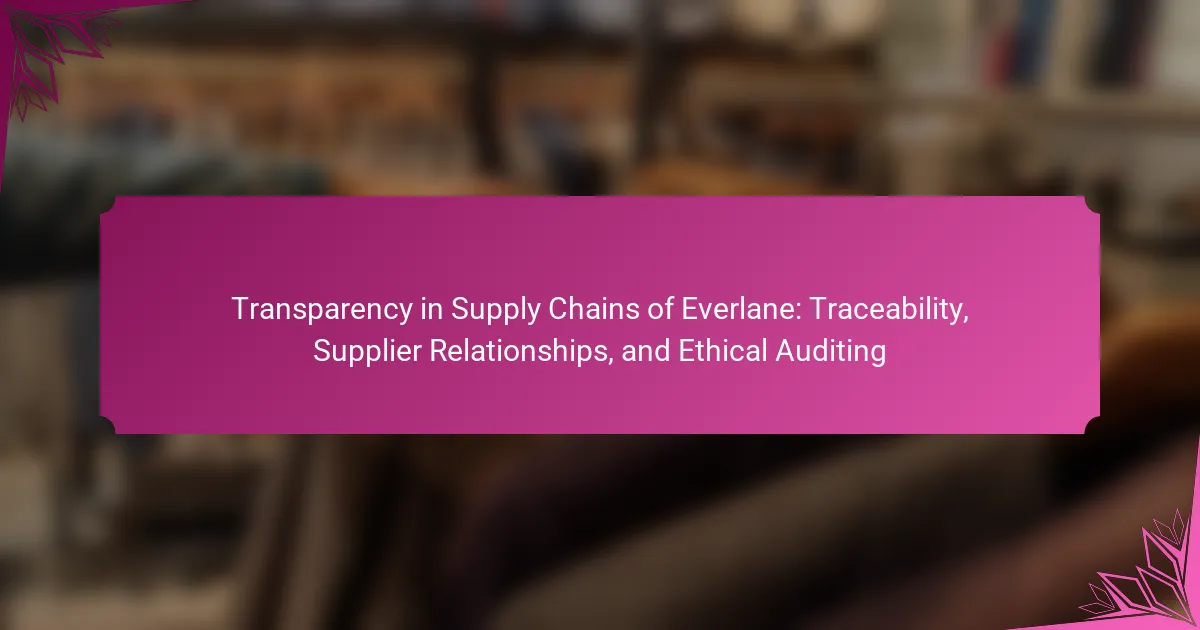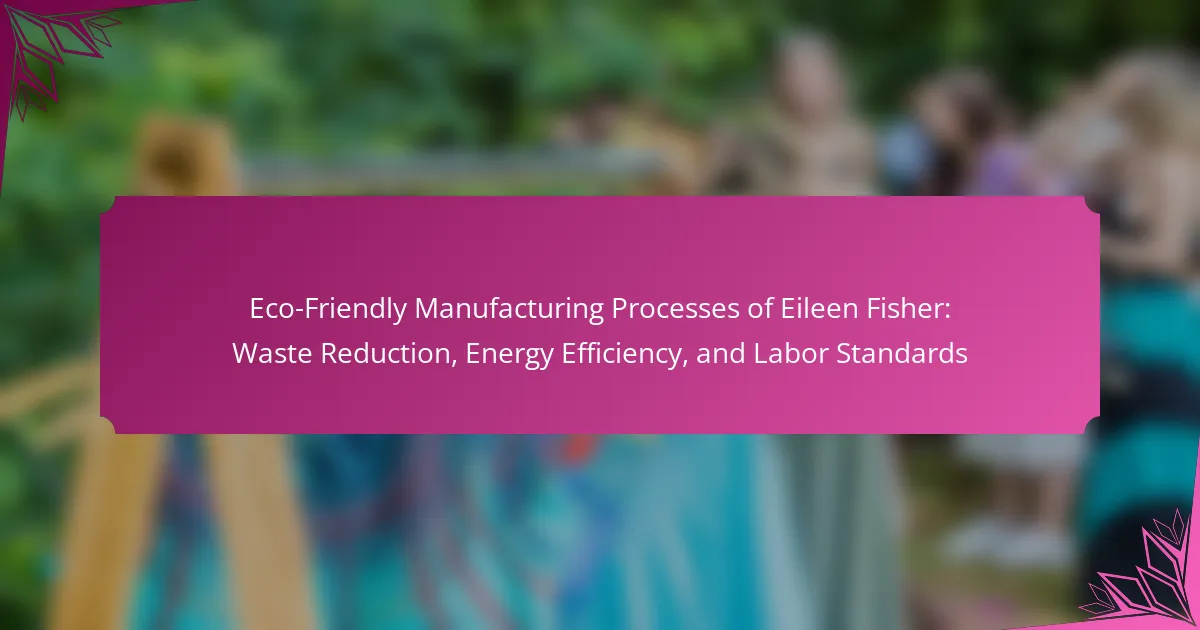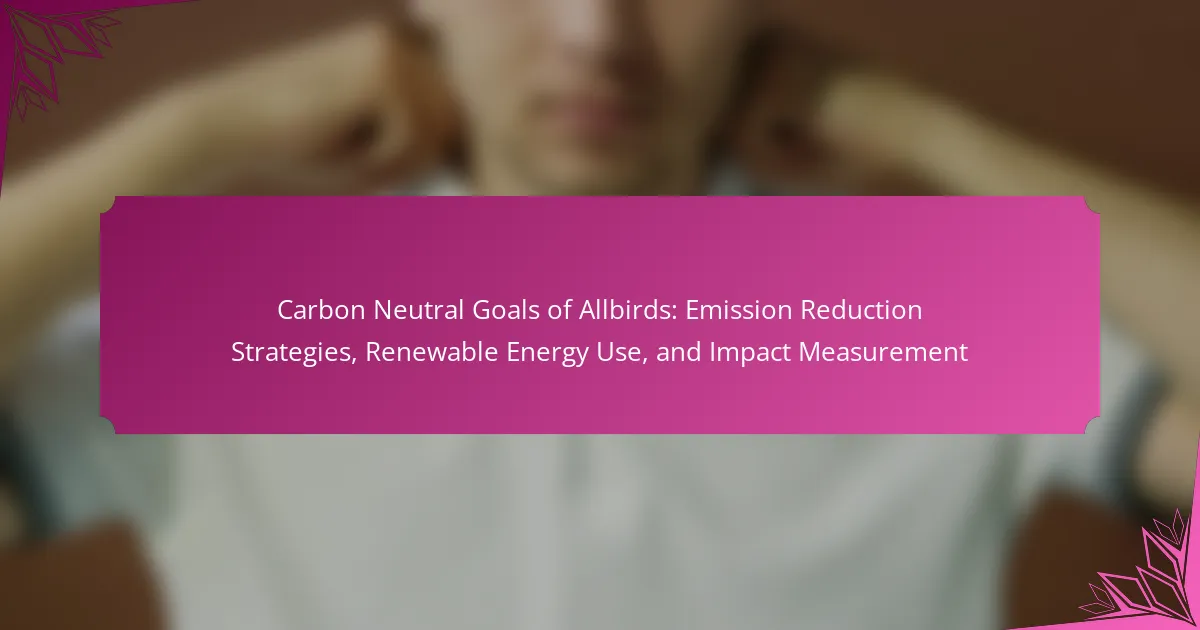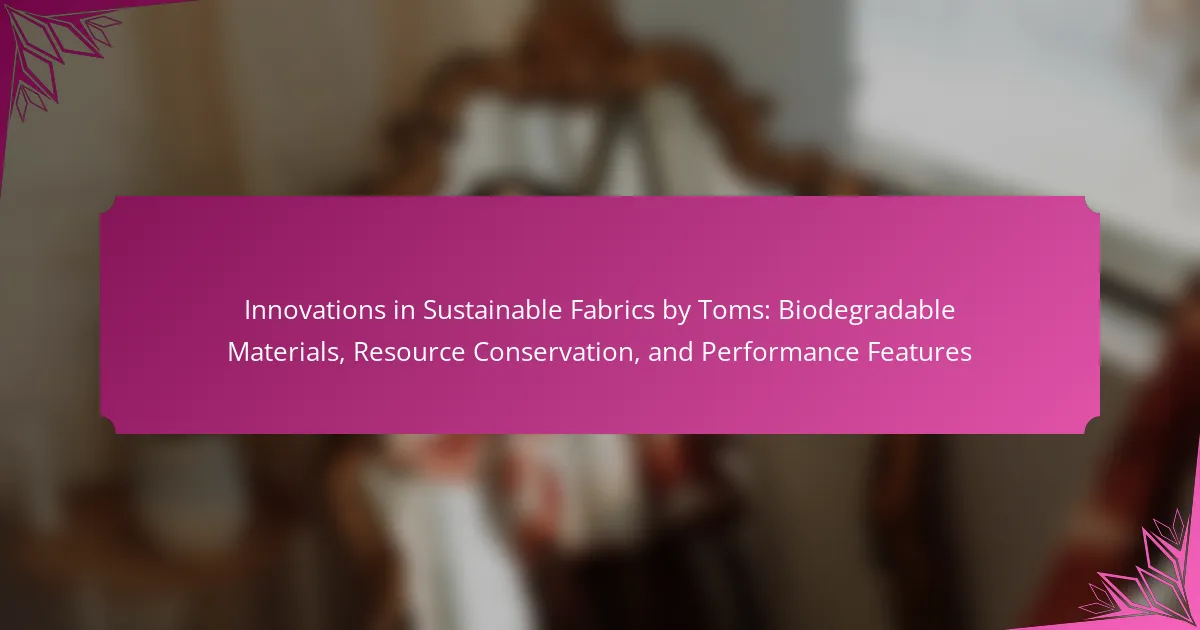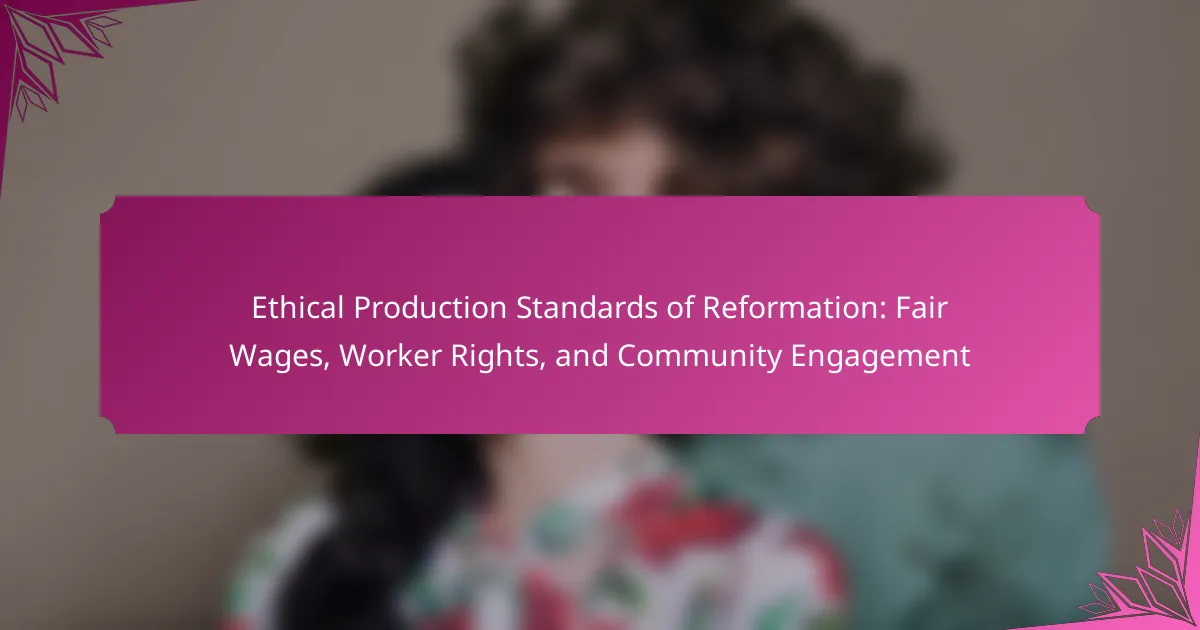Everlane is a fashion brand known for its commitment to transparency in supply chains, focusing on ethical practices and accountability. The article outlines Everlane’s approach to transparency, which includes detailed insights into manufacturing processes, supplier relationships, and ethical auditing. It emphasizes the importance of direct partnerships with manufacturers to ensure compliance with labor practices and environmental standards. Regular audits conducted by third-party organizations reinforce Everlane’s commitment to ethical production and provide consumers with the necessary information to make informed purchasing decisions. By publicly sharing supplier information and audit results, Everlane aims to build trust and meet the growing demand for ethical and sustainable fashion.
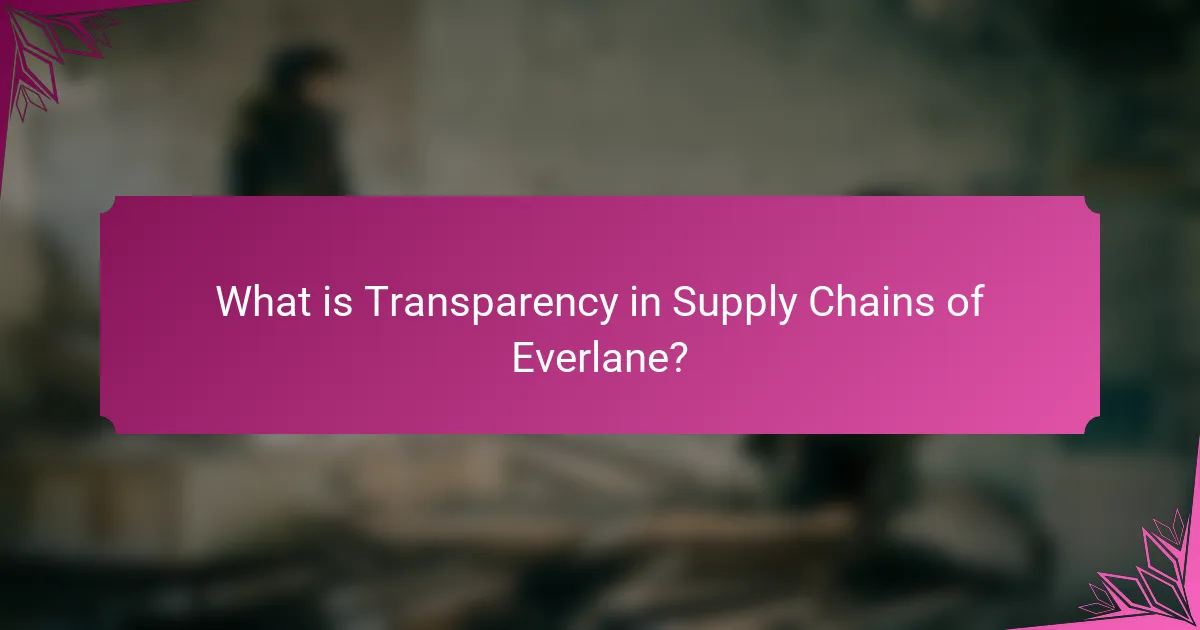
What is Transparency in Supply Chains of Everlane?
Transparency in Supply Chains of Everlane refers to the brand’s commitment to openly sharing information about its manufacturing processes. Everlane provides detailed insights into where and how its products are made. This includes disclosing the factories used and the costs associated with production. The brand aims to foster trust and accountability with consumers. Everlane’s approach includes showcasing its ethical practices and supplier relationships. By promoting transparency, Everlane encourages informed purchasing decisions. The brand believes that consumers have the right to know the origins of their products. This commitment aligns with growing consumer demand for ethical and sustainable fashion.
How does Everlane define transparency in its supply chain?
Everlane defines transparency in its supply chain as a commitment to openly sharing information about its production processes and sourcing practices. This includes disclosing the factories where its products are made. Everlane provides details about the costs associated with each item, including materials, labor, and transportation. The brand emphasizes ethical practices and strives for accountability in its relationships with suppliers. Everlane also publishes comprehensive information on its website regarding the environmental impact of its production. This approach is designed to build trust with consumers and promote informed purchasing decisions.
What key principles underpin Everlane’s approach to transparency?
Everlane’s approach to transparency is underpinned by three key principles: radical transparency, ethical sourcing, and cost breakdown. Radical transparency involves openly sharing information about production processes and pricing. Ethical sourcing ensures that all materials are responsibly sourced from suppliers who adhere to fair labor practices. Cost breakdown provides customers with a clear understanding of the true cost of each product, including manufacturing, materials, and markup. These principles reflect Everlane’s commitment to accountability and integrity in their supply chain practices.
How does transparency influence consumer trust in Everlane?
Transparency significantly enhances consumer trust in Everlane. The brand openly shares information about its supply chain and production processes. This includes details on pricing and the factories where products are made. By providing this information, Everlane allows consumers to make informed purchasing decisions. Studies show that transparency can lead to increased customer loyalty and satisfaction. Research conducted by the Harvard Business Review indicates that companies demonstrating transparency can gain a competitive edge. Everlane’s commitment to ethical practices further solidifies its reputation among consumers. This focus on transparency aligns with growing consumer demand for accountability in fashion.
Why is traceability important in Everlane’s supply chain?
Traceability is important in Everlane’s supply chain because it ensures transparency and accountability. This practice allows Everlane to track the origins of its materials and the conditions under which they are produced. By maintaining traceability, Everlane can verify compliance with ethical standards. This includes labor practices and environmental impact. Traceability also builds consumer trust. Customers can see where their products come from and the processes involved. Furthermore, it helps identify and mitigate risks within the supply chain. Accurate tracking can lead to improved supplier relationships. Overall, traceability is a key component of Everlane’s commitment to ethical fashion.
What methods does Everlane use to ensure product traceability?
Everlane uses several methods to ensure product traceability. They provide detailed information about their factories and supply chain partners. Each product page includes the factory’s location and its ethical practices. Everlane also publishes a “Radical Transparency” report. This report outlines the costs and sourcing of their products. They utilize a direct-to-consumer model to maintain control over their supply chain. Additionally, Everlane engages in regular audits of their suppliers. These audits assess labor practices and environmental impact. This comprehensive approach enhances accountability and transparency in their supply chain.
How does traceability impact the quality of Everlane’s products?
Traceability directly enhances the quality of Everlane’s products. It allows the company to monitor each stage of production. This oversight ensures that high standards are maintained throughout the supply chain. Everlane sources materials from verified suppliers committed to ethical practices. By tracking materials from origin to finished product, Everlane can identify and address potential quality issues. This process also fosters accountability among suppliers. As a result, customers receive products that meet Everlane’s quality benchmarks. Traceability ultimately builds consumer trust in the brand’s commitment to quality and ethics.
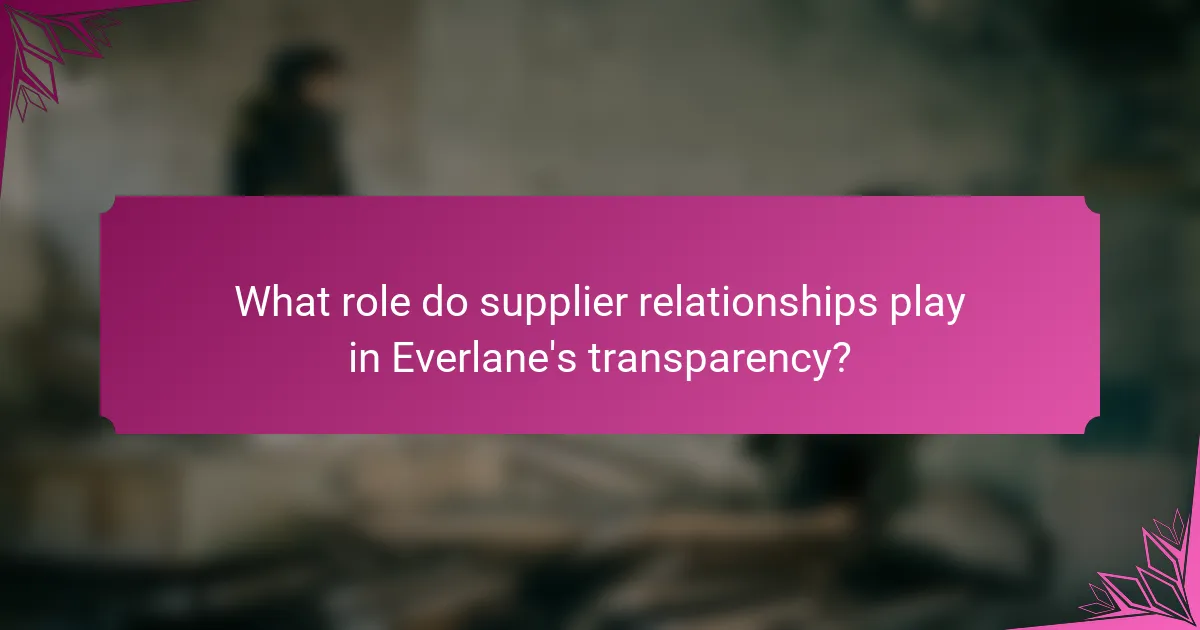
What role do supplier relationships play in Everlane’s transparency?
Supplier relationships are crucial to Everlane’s transparency. They enable the brand to share detailed information about sourcing practices. Everlane maintains direct partnerships with manufacturers. This direct connection allows for open communication regarding labor practices and material sourcing. The company publicly shares its list of suppliers on its website. This transparency builds trust with consumers. Everlane’s commitment to ethical production is reinforced through these relationships. Regular audits and assessments of suppliers further ensure compliance with ethical standards.
How does Everlane select its suppliers?
Everlane selects its suppliers based on ethical standards and transparency. The company prioritizes factories that adhere to fair labor practices. Everlane conducts thorough audits to ensure compliance with these standards. The selection process includes evaluating working conditions and environmental impact. They focus on building long-term relationships with suppliers. This approach fosters accountability and trust. Everlane shares information about its suppliers publicly to enhance transparency. This commitment to ethical sourcing is a core aspect of their brand identity.
What criteria are used to evaluate supplier compliance with ethical standards?
Supplier compliance with ethical standards is evaluated using several key criteria. These include adherence to labor laws, fair wages, and safe working conditions. Additionally, suppliers must demonstrate transparency in their sourcing practices. Environmental sustainability practices are also assessed. Regular audits and assessments are conducted to verify compliance. Supplier training on ethical practices is often required. Companies may also consider the supplier’s track record of ethical conduct. Compliance with international standards, such as the Global Reporting Initiative, is frequently used as a benchmark.
How does Everlane maintain ongoing communication with suppliers?
Everlane maintains ongoing communication with suppliers through regular check-ins and visits. The company prioritizes transparency and builds strong relationships with its suppliers. They utilize digital communication tools for real-time updates. Everlane also conducts regular audits to ensure compliance and address any issues. This approach fosters trust and collaboration within their supply chain. By maintaining open lines of communication, Everlane ensures alignment on ethical standards and production practices.
What are the benefits of strong supplier relationships for Everlane?
Strong supplier relationships benefit Everlane by ensuring consistent quality and ethical sourcing. These relationships foster collaboration, leading to improved communication and trust. Trust enhances the ability to negotiate better terms and prices. Additionally, strong connections allow for more transparency in the supply chain. This transparency supports Everlane’s commitment to ethical practices. It also helps in quickly addressing issues that may arise during production. Ultimately, these benefits contribute to Everlane’s brand reputation and customer loyalty.
How do these relationships enhance product quality and ethical production?
Strong relationships with suppliers enhance product quality and ethical production by fostering collaboration and accountability. These partnerships allow for better communication regarding quality standards and ethical practices. When suppliers are closely engaged, they are more likely to adhere to quality protocols. This leads to consistent product outcomes that meet consumer expectations. Furthermore, ethical production is reinforced through shared values and commitments to sustainability. Suppliers are motivated to maintain ethical labor practices when they feel a sense of partnership. This alignment reduces the risk of unethical practices in the supply chain. As a result, brands like Everlane can ensure that their products are not only high quality but also produced under fair conditions.
What challenges does Everlane face in managing supplier relationships?
Everlane faces several challenges in managing supplier relationships. One major challenge is ensuring compliance with ethical standards and labor practices. This is crucial as Everlane promotes transparency and accountability in its supply chain. Another challenge is maintaining consistent quality across different suppliers. Variations in manufacturing processes can lead to discrepancies in product quality. Additionally, Everlane must navigate cultural and communication barriers with suppliers in different regions. These barriers can complicate collaboration and understanding of expectations. Lastly, Everlane faces the challenge of balancing cost efficiency with ethical sourcing. This balance is vital to sustain its business model while adhering to its core values.
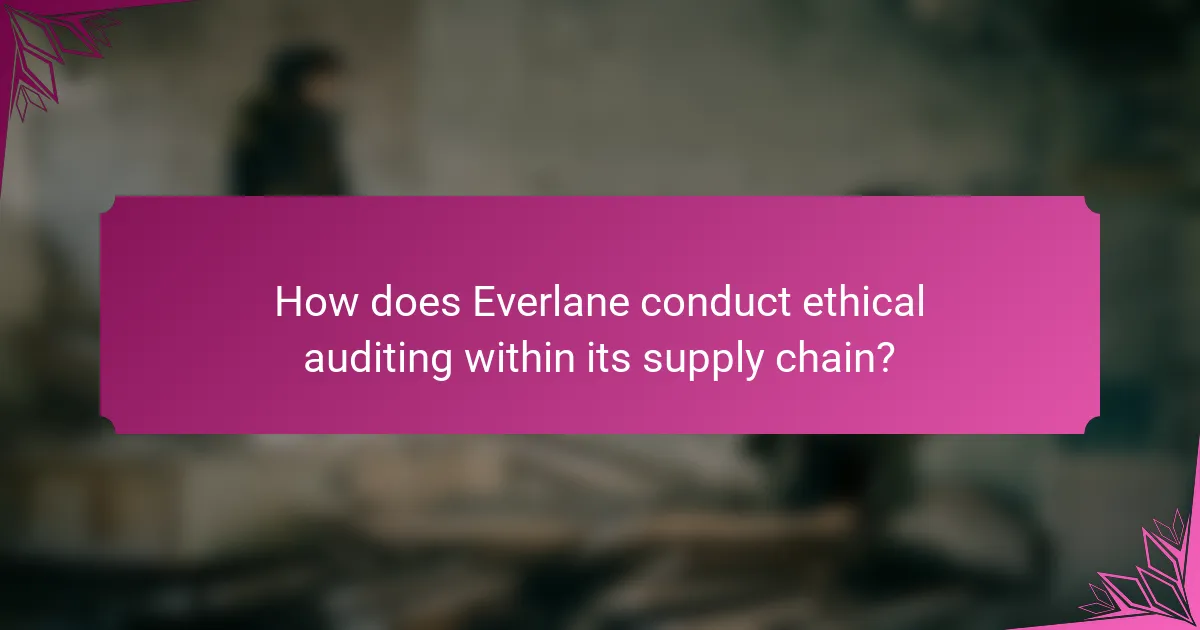
How does Everlane conduct ethical auditing within its supply chain?
Everlane conducts ethical auditing within its supply chain through a rigorous assessment process. The company evaluates suppliers based on labor practices, environmental impact, and overall working conditions. Audits are performed by third-party organizations to ensure impartiality. Everlane requires suppliers to meet specific ethical standards outlined in its code of conduct. These standards include fair wages, safe working environments, and the prohibition of child labor. Regular follow-up audits are conducted to maintain compliance. Everlane also publishes the results of these audits to promote transparency. This commitment helps build trust with consumers and stakeholders.
What auditing processes are implemented by Everlane?
Everlane implements a comprehensive auditing process to ensure ethical practices in its supply chain. The company conducts regular audits of its factories to assess compliance with labor standards. These audits evaluate working conditions, wages, and employee treatment. Everlane collaborates with third-party organizations for independent verification of its standards. The company also emphasizes transparency by sharing audit results publicly. This approach builds trust with consumers and stakeholders. Everlane’s commitment to ethical auditing is reflected in its mission to provide “Radical Transparency.”
How often does Everlane perform audits on its suppliers?
Everlane performs audits on its suppliers annually. This regular auditing process ensures compliance with their ethical standards. It helps maintain transparency in their supply chains. The company emphasizes accountability and responsible sourcing. By conducting these audits, Everlane verifies working conditions and environmental practices. This practice aligns with their commitment to sustainability and ethical manufacturing.
What are the key findings from Everlane’s recent audits?
Everlane’s recent audits revealed significant improvements in supply chain transparency. The audits highlighted enhanced traceability of materials used in production. They confirmed that 100% of factories are now compliant with ethical labor standards. Additionally, the audits showed a reduction in carbon emissions across their supply chain. Everlane has also increased the number of sustainable materials sourced. These findings demonstrate a commitment to ethical practices and sustainability. Overall, the audits reflect Everlane’s dedication to transparency and responsible sourcing.
What standards does Everlane adhere to during ethical audits?
Everlane adheres to several standards during ethical audits. These standards include compliance with local labor laws and regulations. They also require suppliers to provide safe working conditions. Fair wages are mandated for all workers in their supply chain. Additionally, Everlane emphasizes transparency in its sourcing practices. They conduct regular audits to ensure adherence to these standards. Third-party organizations often assist in these audits to validate compliance. Everlane’s commitment to ethical practices is reflected in their audit reports. This approach helps maintain accountability within their supply chain.
How does Everlane ensure compliance with international labor laws?
Everlane ensures compliance with international labor laws through rigorous ethical auditing practices. The company conducts regular audits of its suppliers to verify adherence to labor standards. These audits assess working conditions, wages, and employee treatment. Everlane maintains transparency by publicly sharing its supplier list. The brand also collaborates with organizations that specialize in labor rights. This partnership helps ensure ongoing compliance with international regulations. Additionally, Everlane provides training for suppliers on labor law requirements. These measures collectively reinforce Everlane’s commitment to ethical labor practices.
What role do third-party auditors play in Everlane’s auditing process?
Third-party auditors ensure compliance with Everlane’s ethical standards and practices. They conduct independent assessments of suppliers and manufacturing facilities. These auditors evaluate labor conditions, environmental impact, and adherence to fair trade principles. Their role is critical in maintaining transparency in Everlane’s supply chain. By providing unbiased reports, they help identify areas for improvement. This process builds consumer trust in Everlane’s commitment to ethical practices. Third-party audits also contribute to accountability among suppliers, reinforcing Everlane’s brand integrity.
What practical steps can consumers take to support transparency in supply chains?
Consumers can support transparency in supply chains by researching brands before purchasing. They should look for companies that provide detailed information about their sourcing practices. This includes checking if brands disclose supplier names and locations. Consumers can also seek out certifications that indicate ethical practices, such as Fair Trade or B Corp. Engaging with brands on social media can encourage them to be more transparent. Additionally, consumers can support initiatives that advocate for supply chain transparency. By sharing information and experiences, they can raise awareness among peers. These actions collectively promote a culture of accountability in the marketplace.
Transparency in Supply Chains of Everlane is centered on the brand’s commitment to openly sharing information about its manufacturing processes, including factory locations, production costs, and ethical practices. The article explores key principles such as radical transparency, ethical sourcing, and cost breakdown that underpin Everlane’s approach, while highlighting the importance of traceability and strong supplier relationships in building consumer trust. Additionally, it details Everlane’s ethical auditing processes, the role of third-party auditors, and the criteria used to evaluate supplier compliance with international labor laws. The article emphasizes how these practices contribute to accountability, quality assurance, and consumer engagement in the sustainable fashion landscape.
